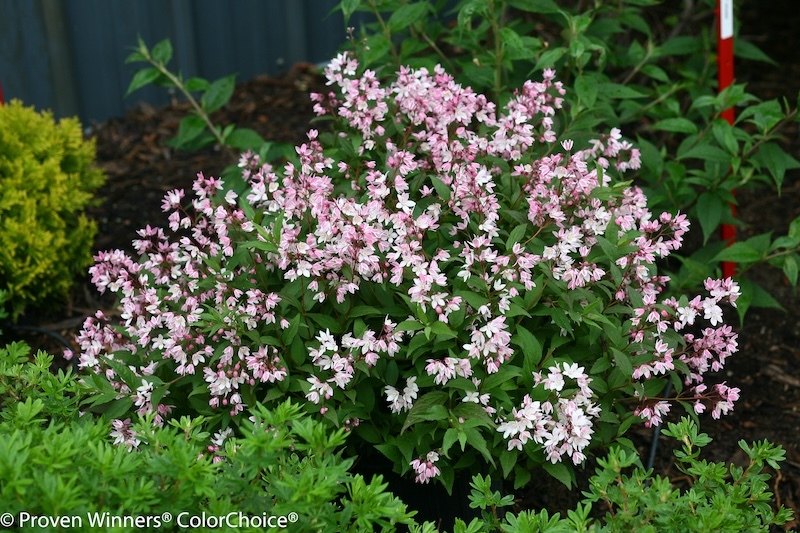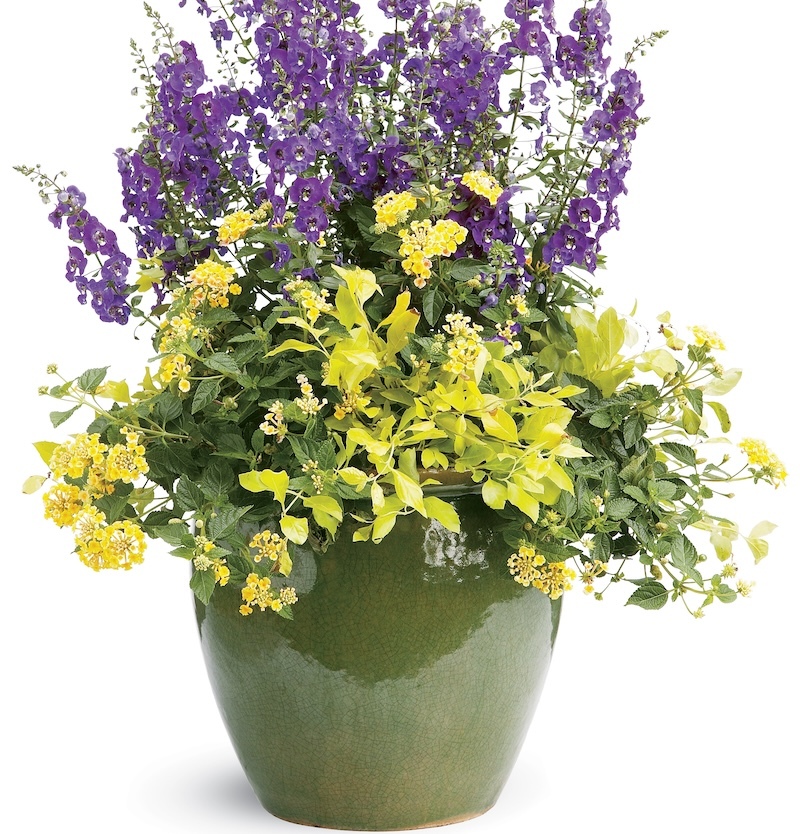Deutzia is a well-loved ornamental shrub that can be easy to overlook when planning a garden design. The medium-sized shrub features highly fragrant and prolific flowers in late spring and early summer, which attract beneficial pollinators including hummingbirds in large numbers. The flowers are typically pink or white and give the shrubs a soft and elegant feel when in full bloom. The lightly exfoliating bark adds charm to cottage, woodland, or naturalized garden borders.
As a member of the hydrangea family, Deutzia is versatile and happily adjusts to a wide range of growing conditions. Gardeners in hot climates should protect Deutzia from hot afternoon sun. Provide supplemental watering until your Deutzia is well-established and during hot, dry spells.

Shrubs To Plant With Deutzia
Spring-blooming broadleaf evergreens and deciduous shrubs make lovely companions for larger-growing Deutzia shrubs. Shrubs with growing preferences similar to Deutzia include pieris, rhododendron, azalea, and hebe. These shrubs also offer a year-round backdrop for other deciduous shrubs. Lower-growing Deutzia varieties work well in front of shrub roses, potentilla, dogwood shrubs, lilacs, and mock oranges. Plant Deutzia in a naturalized area of your yard alongside kerria, snowberry, and mahonia to provide habitat for local backyard wildlife.
Perennials To Plant With Deutzia
Perennials with long bloom periods like tall phlox, heuchera, dianthus, and columbine look great planted in front of Deutzia. Deutzia’s open shape and solid green foliage makes the perfect backdrop for spring bulbs, bearded iris, Japanese iris, and bleeding hearts. To extend color into summer, select Japanese anemone, perennial salvia, ornamental grasses, and coneflowers, which also benefit from Deutzia’s informal shape and clean green foliage in the background. Shade lovers with interesting foliage like hostas, ferns, and hellebores are another great direction for designing with Deutzia.

Annuals To Plant With Deutzia
Annuals make a useful temporary ground cover to suppress weed growth until larger shrubs and perennials are fully mature. Use bedding annuals that hug the ground and will spread to cover a large area of an open garden bed. Pansies and violas grow well in either full sun or partial shade and often self-seed for continued color each year. Add hot-season annuals like petunias, calibrachoa, sweet alyssum, and fuchsia to extend the blooming period into fall and suppress weed growth all season long.
Best Companion Plants For Deutzia in Containers
Smaller Deutzia varieties have become more available in recent years and are ideal for planting as part of a mixed seasonal planter to provide both flowers and filler foliage. For a fool-proof combination, position snapdragons in the middle as a thriller bordered by lantana as a spiller and Deutzia as the filler. After Deutzia’s delicate blooms fade in early summer, the medium green foliage will stay fresh for the rest of the summer growing season.
Water the container when the top 1-2 inches of soil have dried out. Fertilizing once a month with a diluted seaweed extract or fish emulsion will keep the plants nourished until dormancy in the fall.

Plants Not To Grow With Deutzia
Deutzia is not able to grow well in climates with excessively hot or dry summers. Drought-tolerant plants like santolina, penstemon, and ice plants will struggle near Deutzia in partially shaded or damp sites. Plants that prefer boggy or submerged conditions, like marsh marigolds, cattails, rush reed grass, and yellow flag iris are also not the best choices to plant near Deutzia.
Best Plants To Grow With Deutzia
A vast range of plants can grow well alongside Deutzia in the home garden. Perennials, shrubs, and annuals with an informal, open shape make the most successful pairings. Ensure that any potential growing partner appreciates well-drained soil and partial shade to full sun. When companion plants share the same growing preferences, the planting is likely to thrive for many years.
Sources: "Deutzia." The North Carolina Extension Gardener Plant Toolbox. plants.ces.ncsu.edu
